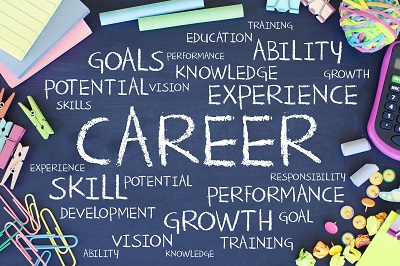How Vocational Rehabilitation Works
Important Terms | Your VR Counselor | Steps to Your Vocational Rehabilitation | Responsibilities & Rights | Avenues of Appeal

Your Path to Work - the VR Program Explained
Congratulations! By coming to DARS, you've taken an important step towards employment. Our Vocational Rehabilitation (VR) program offers services to empower individuals with disabilities to enter the work force or return to work.
You are eligible for the DARS Vocational Rehabilitation (VR) program if:
- You have a physical, mental, or emotional disability; and
- This disability is keeping you from working; and
- You want to work and you think DARS services can help you, and
- You are in Virginia (living, working, or moving here), and
- DARS certifies that there is a good chance that DARS vocational rehabilitation services will result in your employment.
Important Terms
ADA - Americans with Disabilities Act of 1990, which prevents discrimination against people with disabilities in employment or public accommodation. Financial Participation. DARS requires you to contribute to the cost of certain services, based on your ability to pay.
Service Providers - Individual or entity that provides a DARS-approved service to you.
Vocational Goal - A suitable job, chosen by you and your counselor, for which you are preparing. This goal is used in deciding which services you need to become employed.
Vocational Rehabilitation (VR) - The steps you and your counselor must take in order to decide if you qualify for the DARS vocational rehabilitation program, to choose a vocational goal, to evaluate your service needs, and to prepare for and find that job. It also includes the steps needed to help you keep or regain employment after your case is closed as successful.
Your DARS Vocational Rehabilitation Counselor
Your DARS counselor is one of the most important people on your vocational rehabilitation team. Your counselor is a trained vocational rehabilitation professional. He or she has skills and resources to empower you to get ready for and find a job that's right for you. Along the way, your counselor will offer guidance and check on your progress. As a team, you and your counselor will face many decisions about your work future. Your counselor can get and help you understand valuable information so you both can make these decisions wisely.
When working with your DARS Counselor, please....
- Be honest about your disability, your needs and your feelings.
- Keep appointments and be on time -- you should call your counselor if you cannot keep an appointment.
- Ask questions if you do not understand something so you can make informed decisions.
- Do your part: don't expect your counselor to do everything for you.
- Call your counselor right away if you have trouble doing anything you are asked to do.






